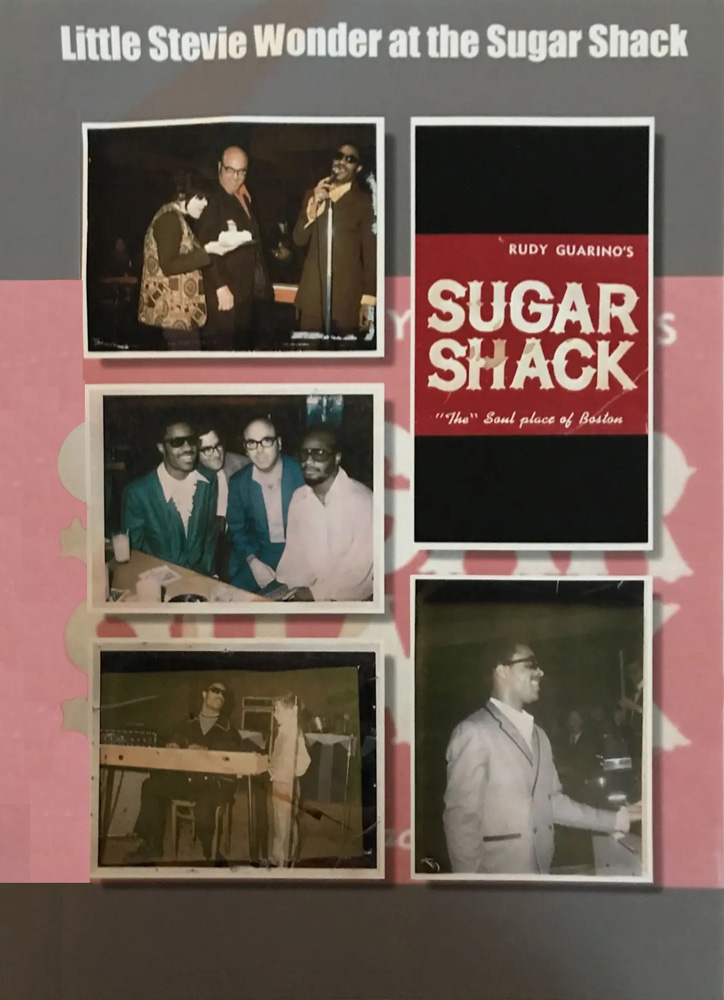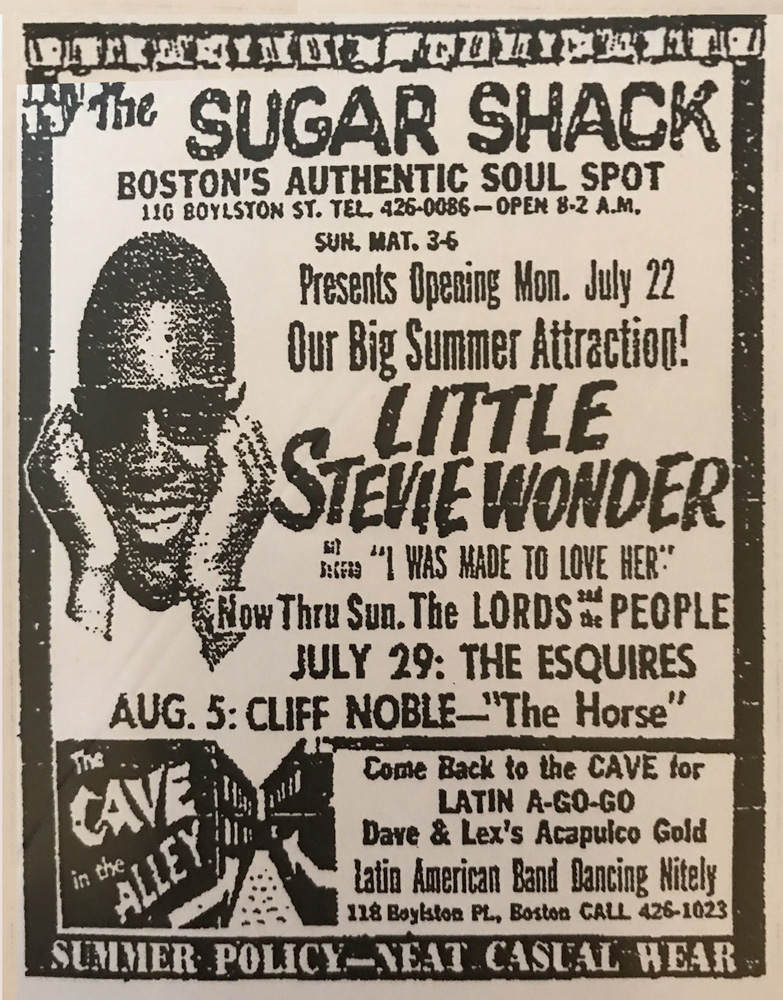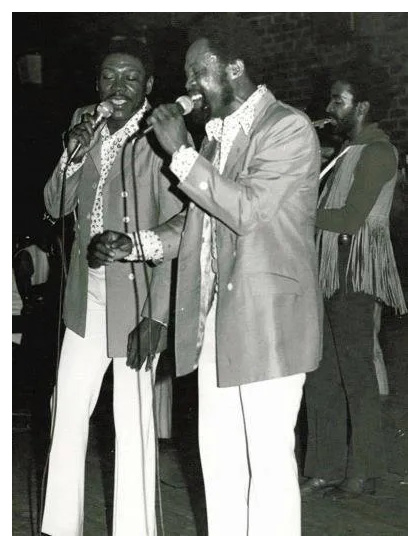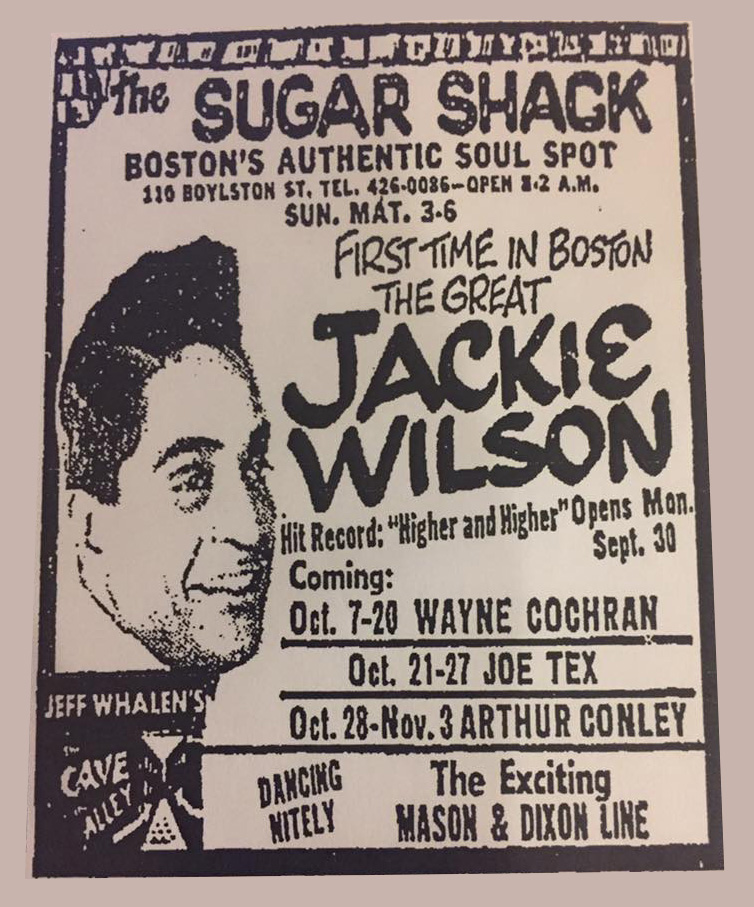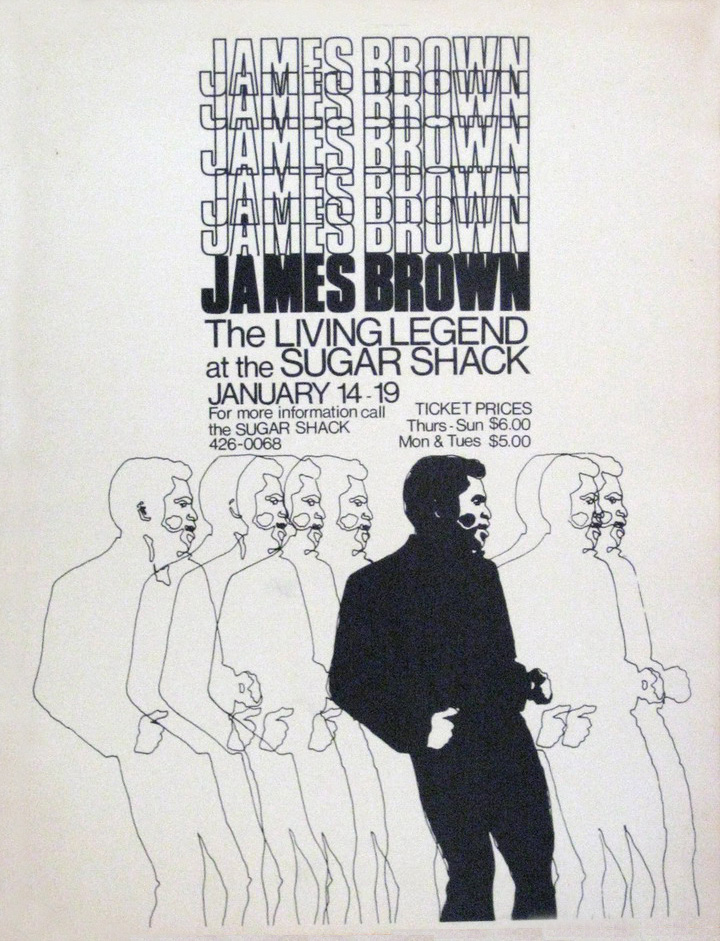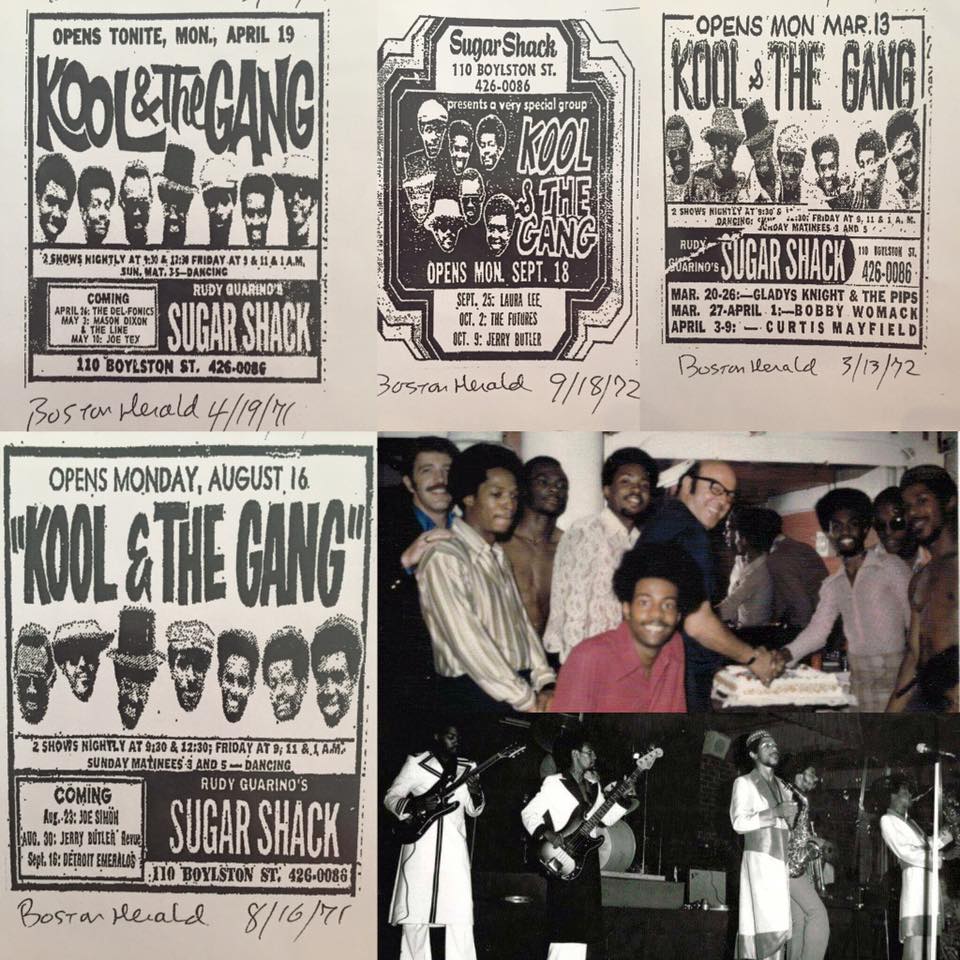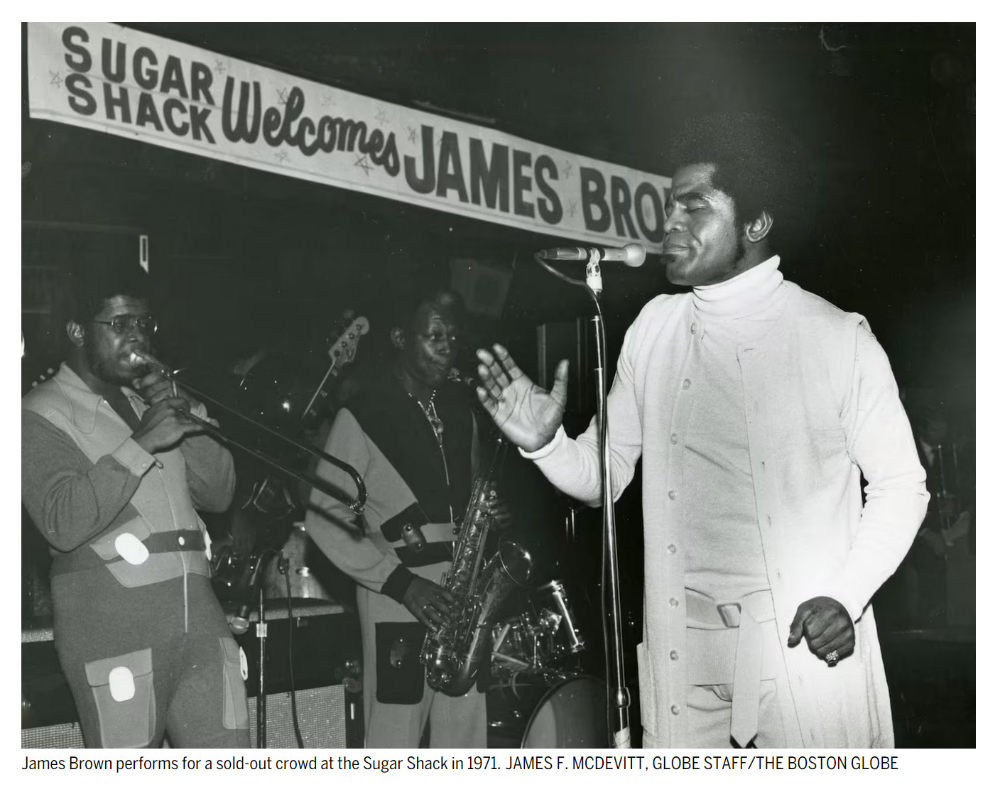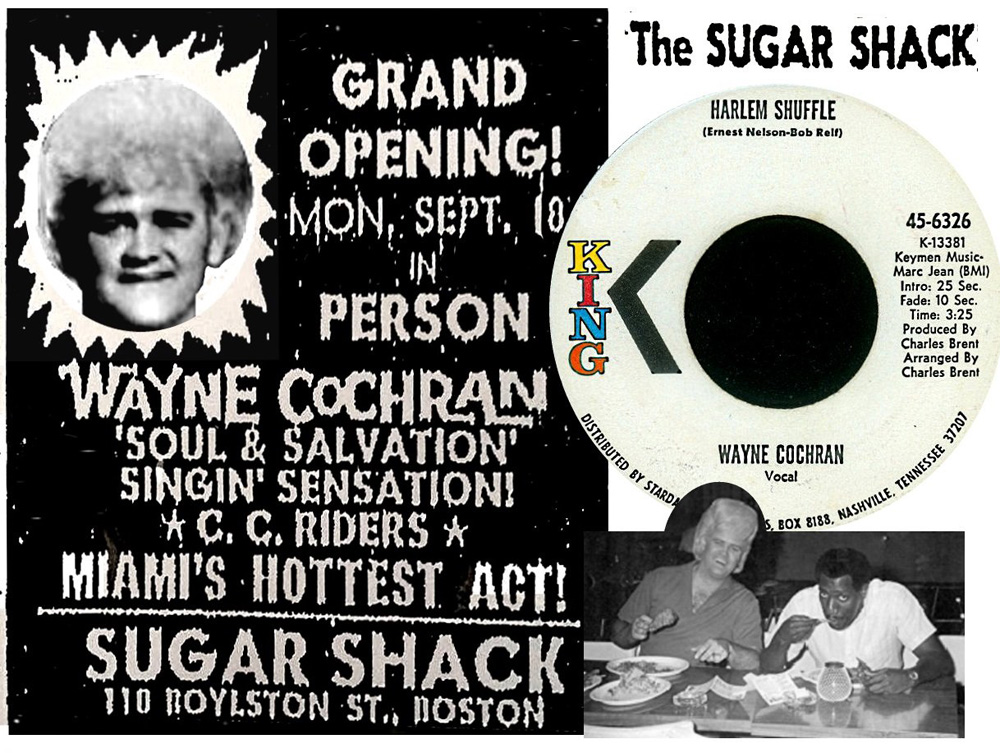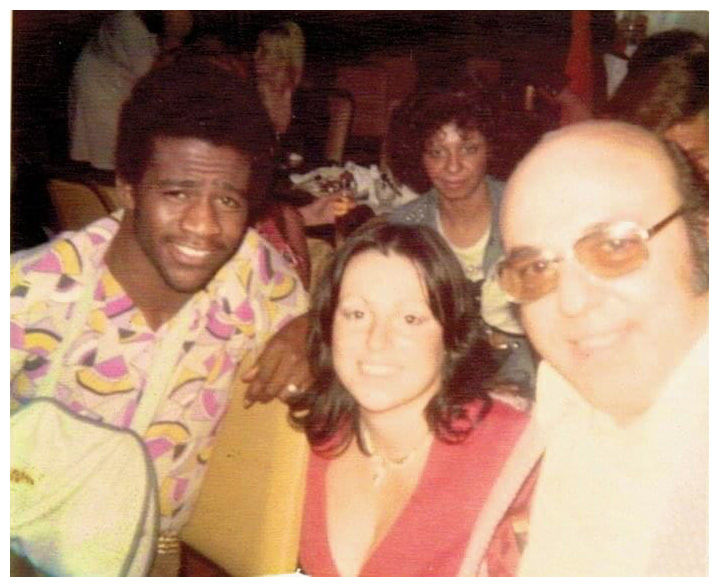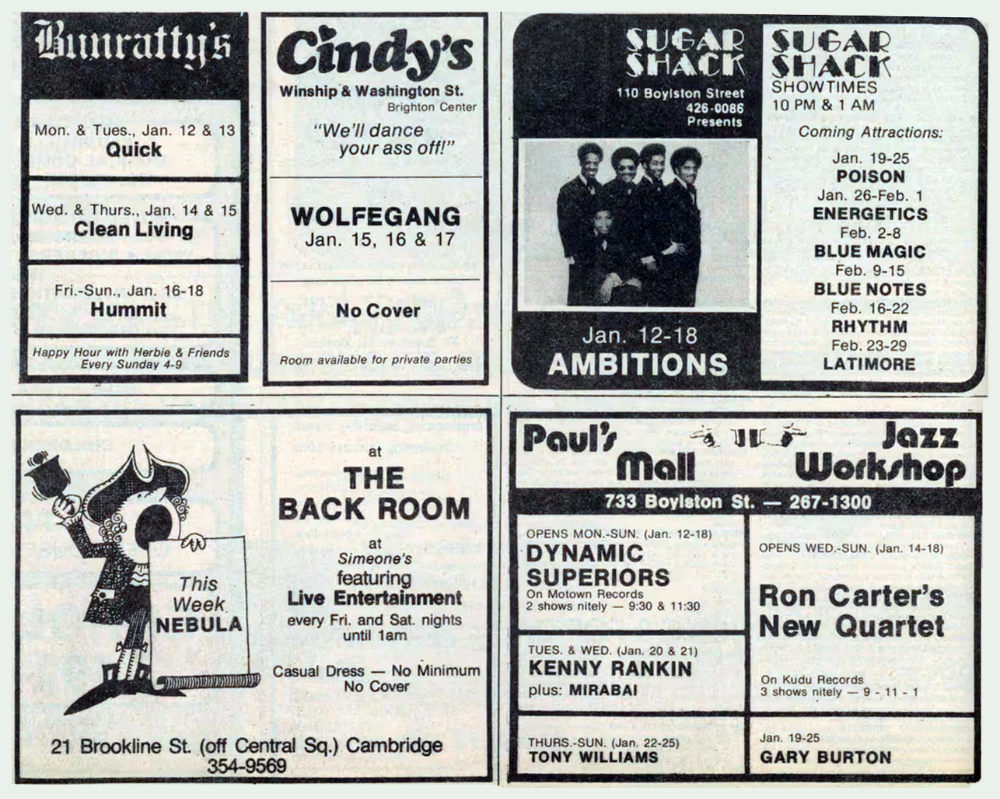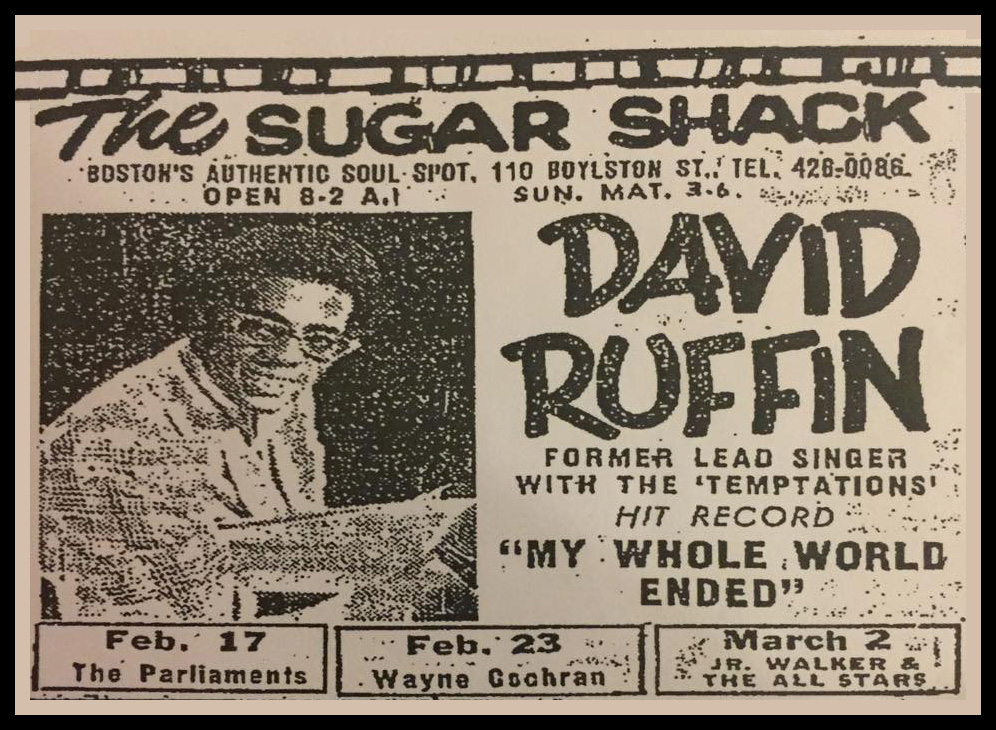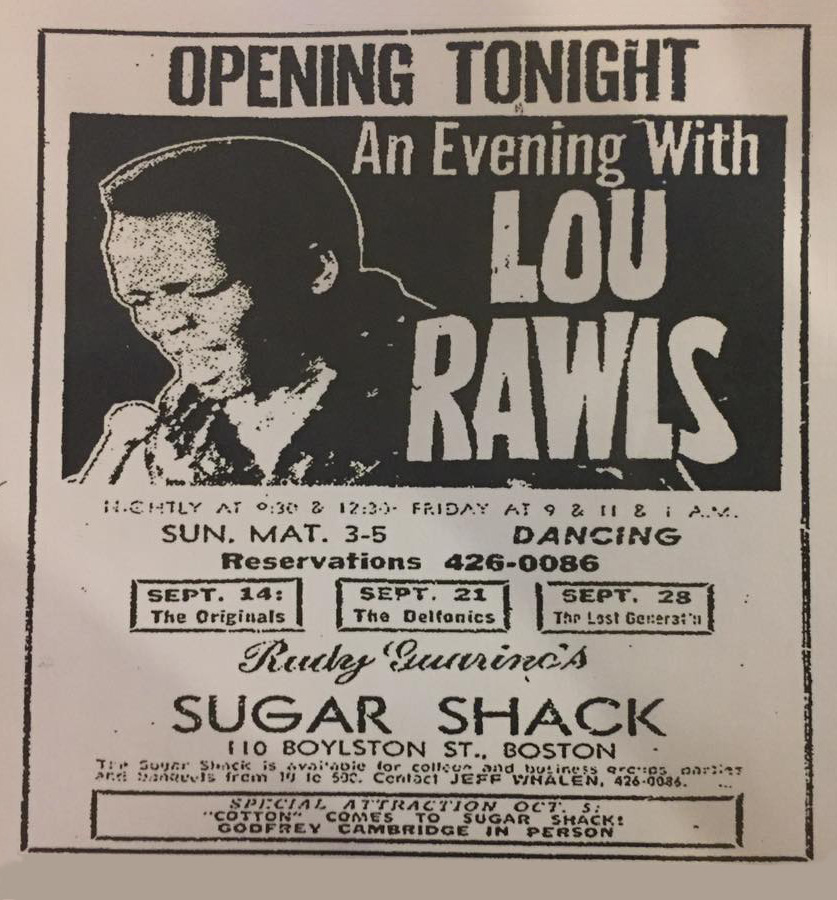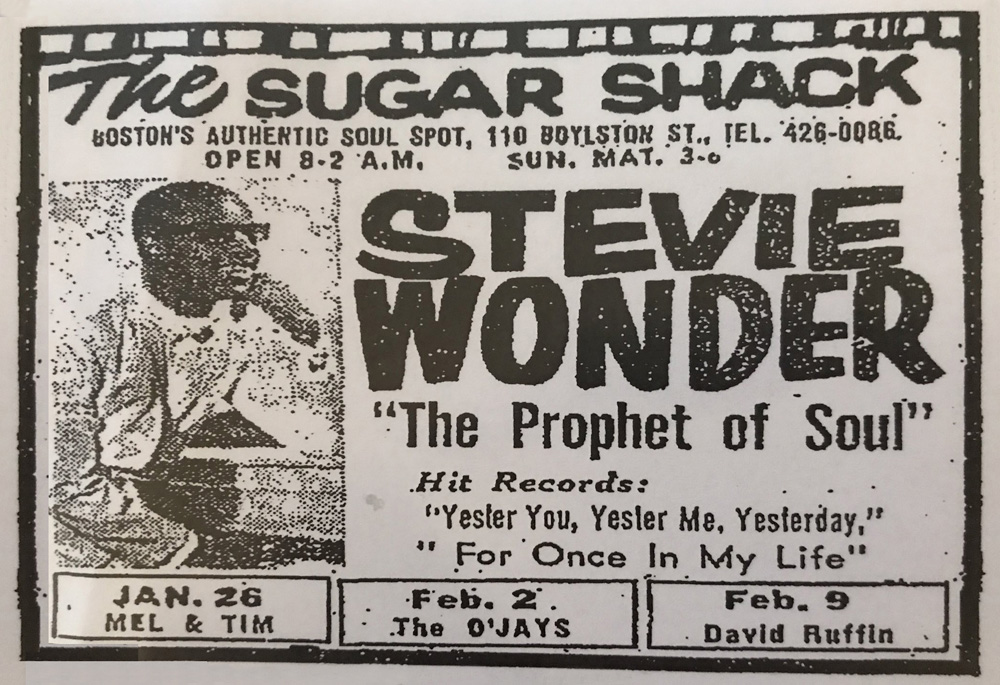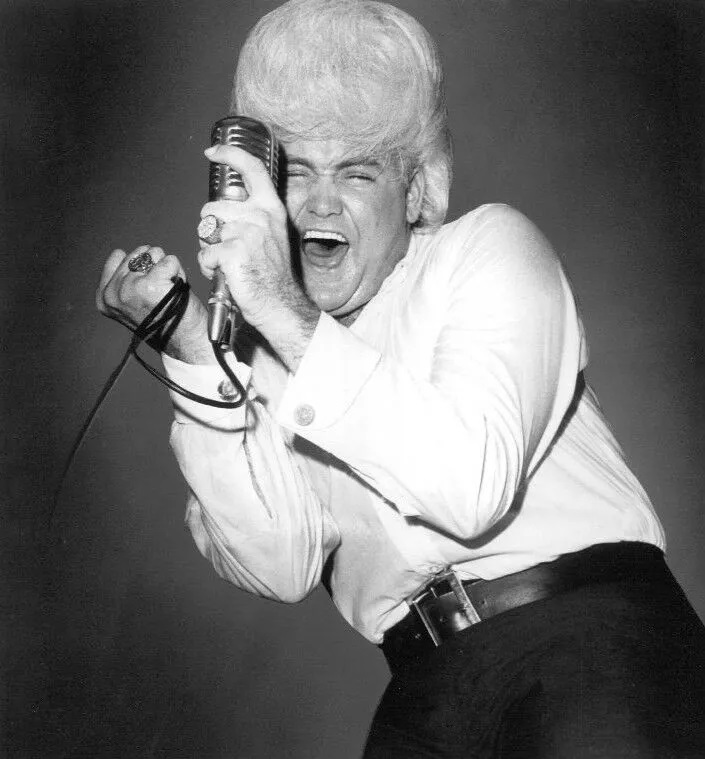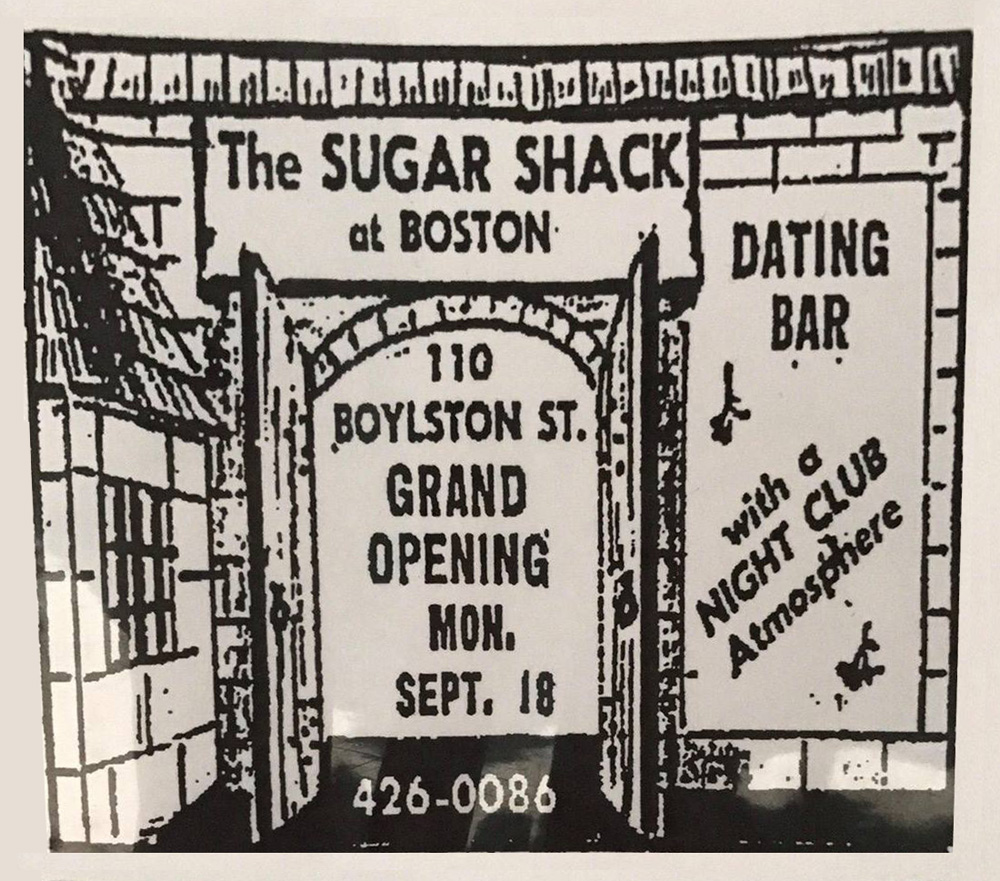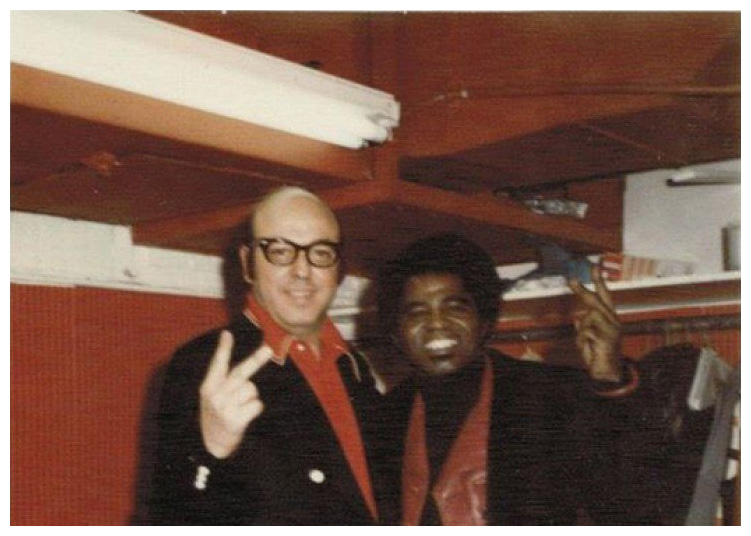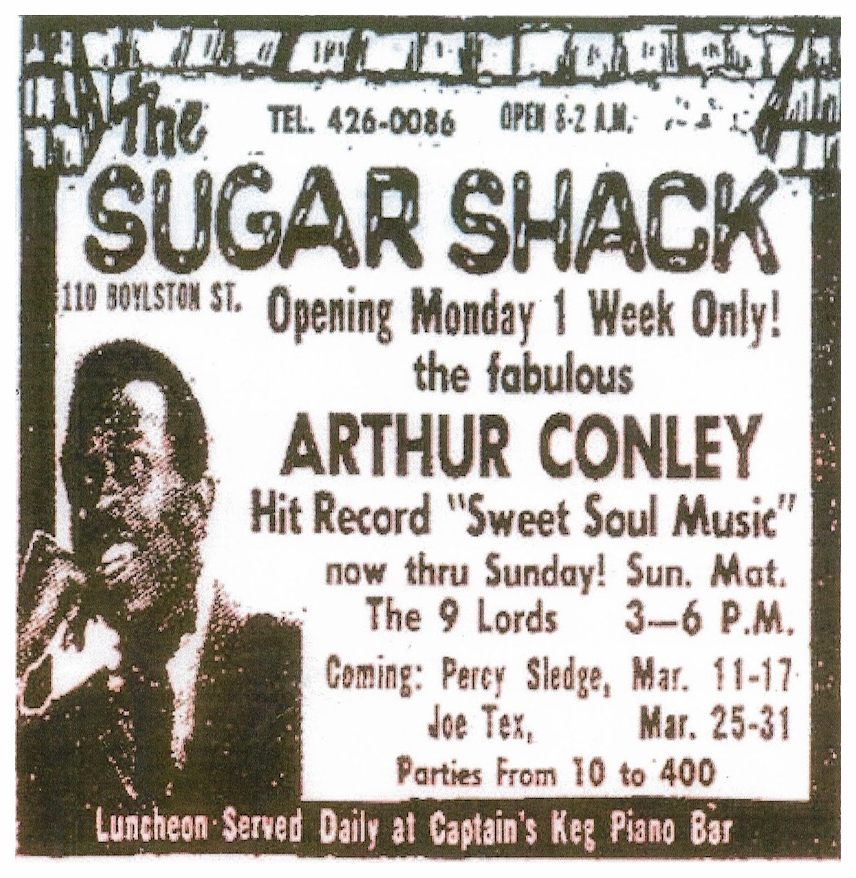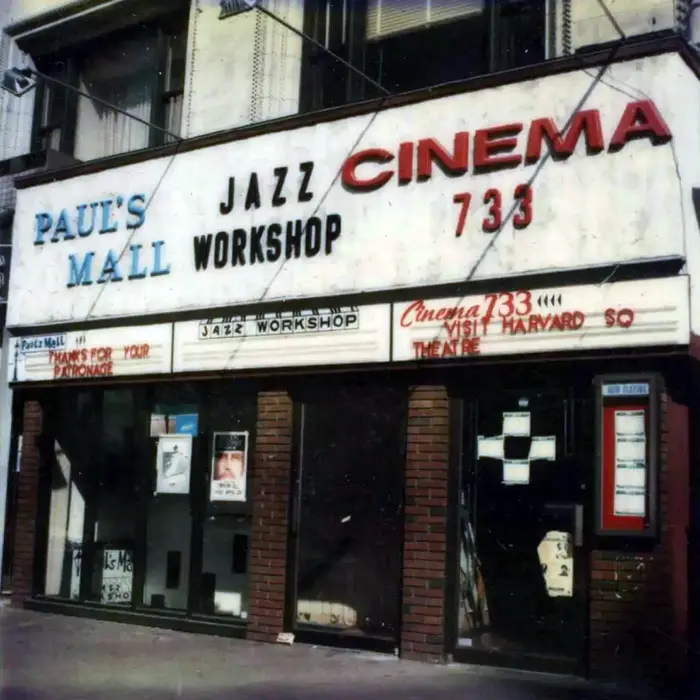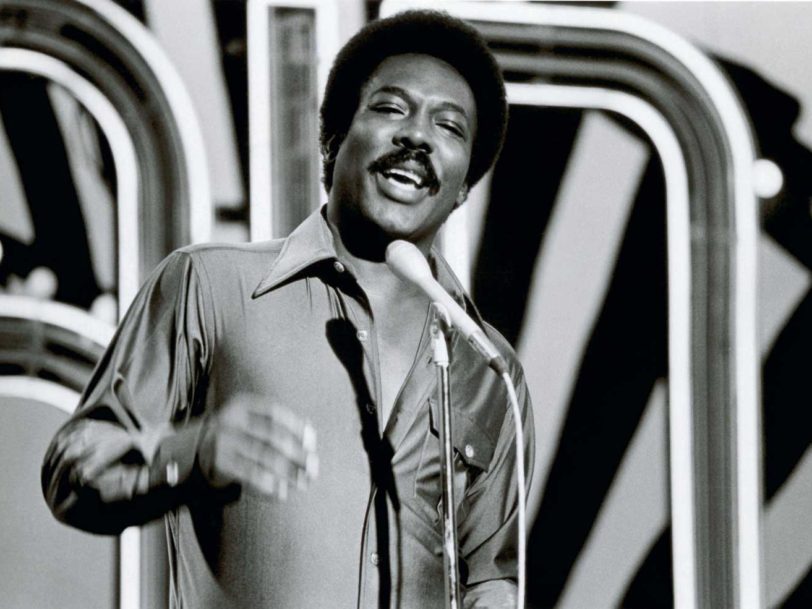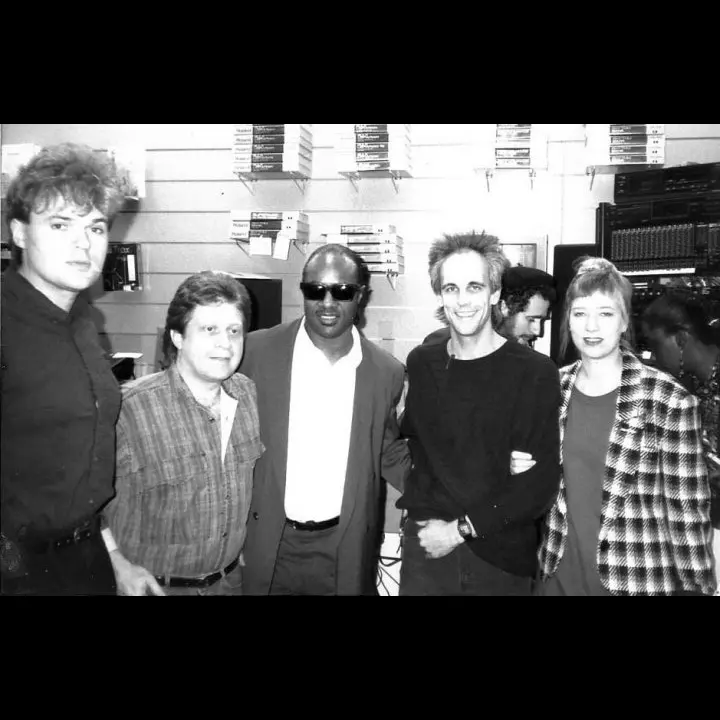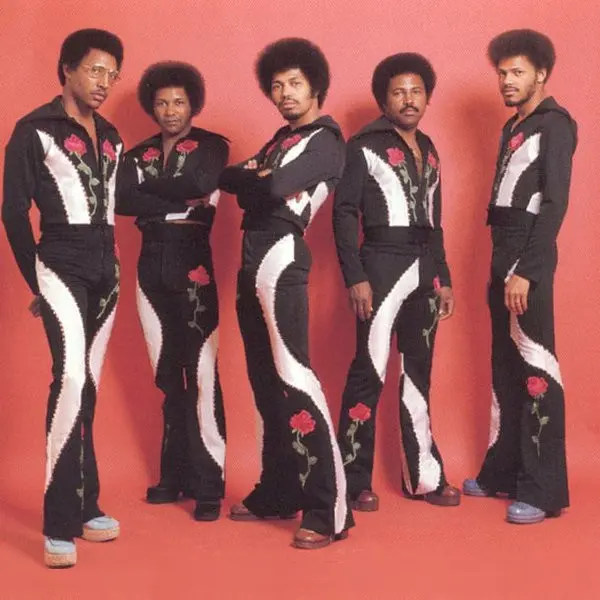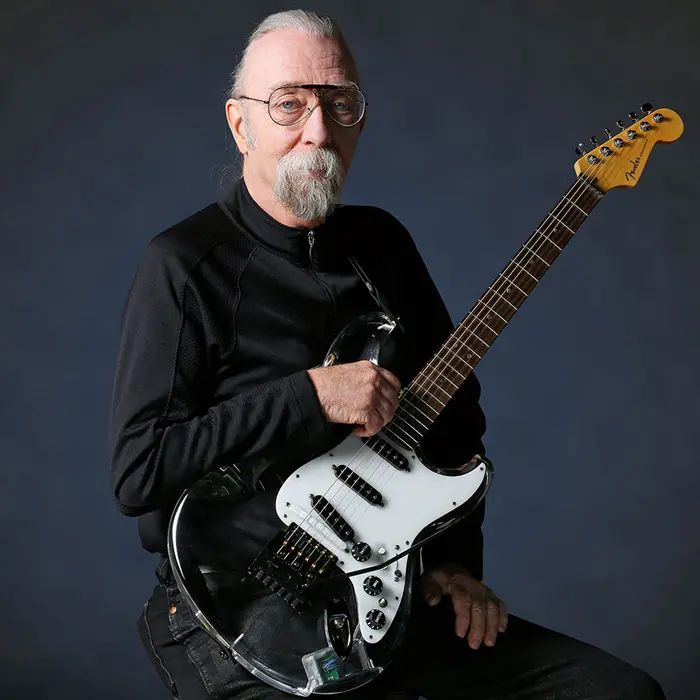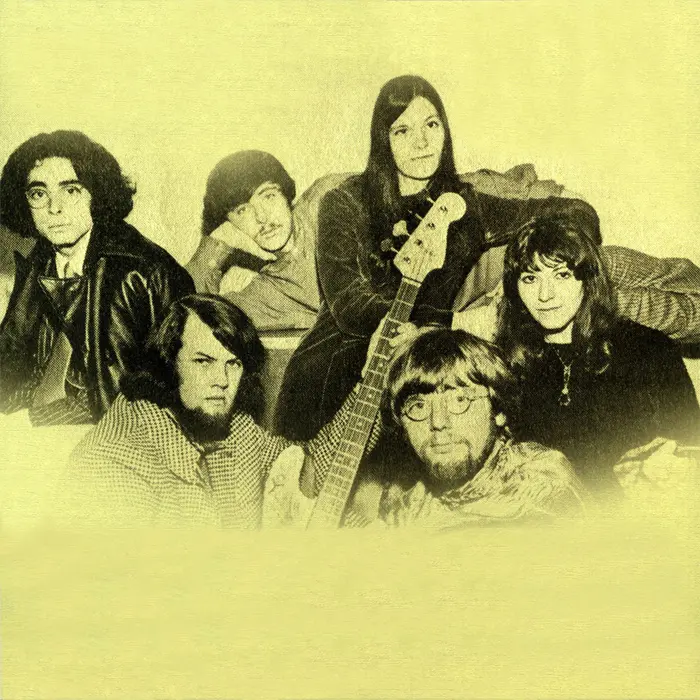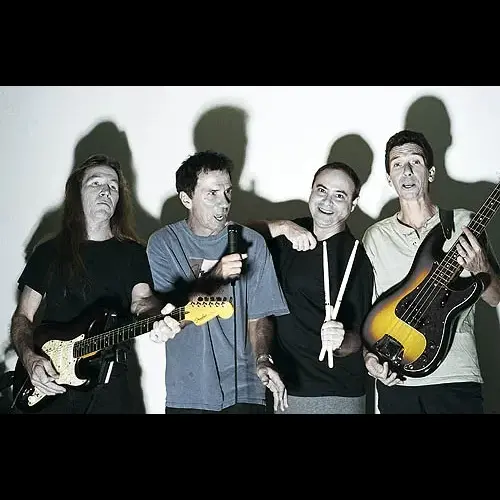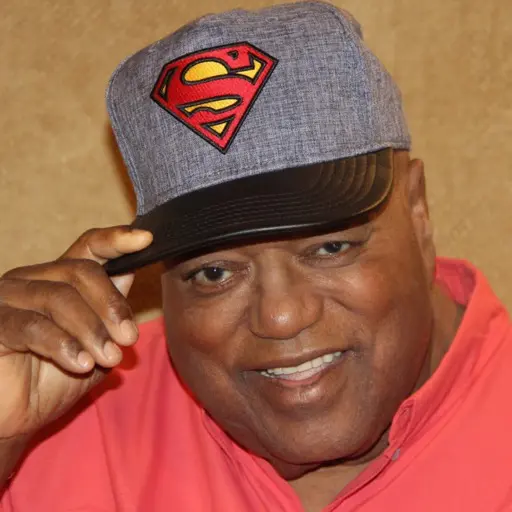The Sugar Shack
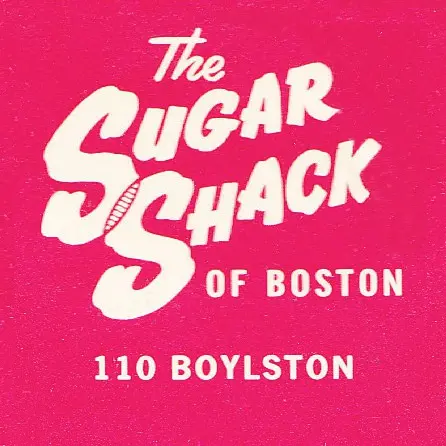
From the mid-‘60s to the mid-‘70s, a number of Boston venues hosted top R&B, soul and funk acts, including The Jazz Workshop/Paul’s Mall, Music Hall and the Back Bay Theatre. But the hottest place in the city for those genres was a club named after a song by Jimmy Gilmer & The Fireballs that went to #1 in the Billboard Hot 100 in 1963: The Sugar Shack. When it came to consistently drawing the biggest names and having the hippest vibe, “the Shack,” as people usually called it, was second to none.
OPENING, OWNERSHIP
The Sugar Shack opened in 1965 at 110 Boylston Place, down a narrow “B” street extension. The facade was partially obscured by the Colonial Theater marquis, so you had to “know about the Shack to go to the Shack” – and lots of people did. The owner, Rudy Guarino, a native of Boston’s North End who’d fallen in love with soul music as a youngster, established the venue to showcase the best local, national and international talent of the genre. Soon after opening, the club became part of the unofficial nightclub subset known as the “Chitlin Circuit,” which included the Uptown Theater in Philadelphia, the Royal Theater in Baltimore and the Regal in Chicago, among others.
Many of those who performed at the venue saw Guarino as a father figure of sorts, since he guided their careers, helped them in their rise to national and international stardom and genuinely believed in the music and the artists. He viewed The Sugar Shack as a family that included all the acts that played within its walls and, though the majority of audience members were African-American (especially in the ‘60s), the club managed to transcend racial barriers. Everyone was welcome at the Shack and everyone was there for the exact same reason: Because music has the power to unite, excite and heal, which is exactly what went down at the Shack.
NOTABLE APPEARANCES, SCHEDULE
Wilson Pickett was the first major act to appear at the Shack, followed by many more household names over the next dozen years including The O’Jays, Stevie Wonder, James Brown, Ray Charles, The Four Tops, The Impressions (Curtis Mayfield’s ‘60s group), Parliament-Funkadelic, Al Green, Jackie Wilson, Gladys Knight & The Pips, Sly and The Family Stone, Sam & Dave, The Chi Lites, Smokey Robinson, The Delphonics, Arthur Conley, Wayne Cochran and The Dells, among others. A number of future stars played the Shack early in their careers such as Frankie Valli, Tavares (known as Chubby & The Turnpikes at the time) and Jeff “Skunk” Baxter, who showed his guitar prowess at the club in 1967/8, joined Ultimate Spinach in ’69, co-founded Steely Dan in ’72 and joined The Doobie Brothers in ’74. The Shack closed in 1977 – when disco fever was rising to a boil in Boston and the greater US – and the last act to appear on its stage was LC Smith & The Trends.
The Shack was open seven days a week and schedule was exhausting for the musicians. The 13-piece house band – led by drummer-songwriter-producer Herschel Dwellingham, known as “Boston’s Number One Soul Man” – played five or six sets a night (from 8pm until 2am), touring acts did two sets a night and on Sundays there was a matinee performance for kids between ages 12 and 17. Basically, the club became a performance-driven training ground for musicians, providing them with the endurance they needed for touring and the repetition required to polish their chops.
DOCUMENTARY, BOOK
In 2020, PortaHaus Entertainment and Got Films released the documentary The Sugar Shack, which features vintage footage from inside the venue and a collection of interviews with many of the artists that were a part of that huge family. Frankie Valli, George Clinton and Cuba Gooding appear in the film, among others, and it offers people a chance to step back in time, re-evoke the mood and re-live some of the magical moments while at the Shack. There have been reports that a book about the club and the extraordinary life of Rudy Guarino is in the works.
GUARINO’S DEATH, SUGAR SHACK LEGACY
Guarino died on April 18, 2020, at age 91 in Las Vegas, where he’d moved with his family years before. In the decades prior to his death, he kept the memory of The Sugar Shack alive by appearing on podcasts and celebrating the club on his Facebook page, where he posted an impressive assortment of photographs of the venue itself and the hundreds of artists who’d appeared over the years.
“It was the best venue in the history of the city of Boston for black music, no doubt,” said frequent patron Eddie B. of Charlestown in a 2020 interview with Jim Botticelli of the website Dirty Old Boston. “The only groups that didn’t play there were The Supremes and The Temptations. There’ll never be another club like it. Never ever. Everybody that played there loved the club. Everybody.”
(by Mark Turner)

